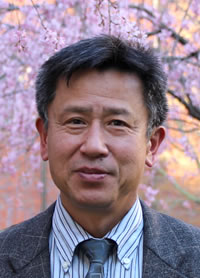In April of 2014, I succeeded Prof. Hiromu Shimizu as the Director of the Center for Southeast Asian Studies at Kyoto University.
In 2015, the Center (CSEAS) will celebrate its 50th anniversary. I am honored to be entrusted with the position of Director at this important milestone. At the same time, I feel the weight of this responsibility and am determined to commit myself to this task.
Looking back on the fifty-year history of the CSEAS, I can say that the Center, while holding true to its founding principle of seeking to understand contemporary issues facing Southeast Asia through interdisciplinary research based on fieldwork, has undergone a steady evolution, largely enabled by its success in identifying ground-level developments in Southeast Asian societies, in undertaking empirically grounded research, and in earnestly and proactively responding to the demands and expectations of stakeholders not only in Japan, but in Southeast Asia and overseas. Hewing closely to the tradition of abiding by solid principles and flexible management established by my predecessors, I hope to further develop this institute into a world-class hub for research on Southeast Asia.
Southeast Asian studies are now on the verge of an historic turning point. This turning point represents a shift of emphasis from one of promoting Southeast Asian studies for the purpose of understanding Southeast Asia to one of conducting research, based on the experiences and realities of Southeast Asia, that will provide lessons, inspiration, and knowhow for humanity and strengthen the basis and chances for the survival of humans as well as the Earth, the close interaction of which we call the “humanosphere.” How to harness nature’s vast latent potential while managing it in a sustainable fashion; how to create societies in which diverse peoples, cultures, and religions can coexist; and how to harmonize the demands of nation-states and markets with the initiatives of citizens and communities so that these can develop are just some of the big issues that Southeast Asian societies and the world more generally are now confronting. I hope that CSEAS will contribute its share to addressing these issues, drawing on the knowledge and evidence accumulated through in-depth research and fieldwork to engage in theory-building and promote perspectives that are attuned to the exigencies arising from Southeast Asia and capable of being refined and shared across regions.
In order to inherit and further advance research on Southeast Asia, it is essential to expand, strengthen, and deepen collaboration among researchers and create a robust academic community. The International Program of Collaborative Research, launched in 2010, is in fact a joint creation of Japan-based and international researchers. Providing a framework for nurturing new and innovative approaches and perspectives in research on Southeast Asia, the IPCR functions as a shared-use facility for both domestic and international collaborative research. Another joint initiative is the Consortium for Southeast Asian Studies in Asia (SEASIA), which was established in October 2013 by ten leading Asian and Southeast Asian studies institutions to promote Southeast Asian studies in Southeast Asia and Northeast Asia, with the CSEAS as the Secretariat. SEASIA is working to organize its first region-based conference in 2015.
I hope to be able to work with all of you, and humbly ask for your continued and even greater support in the future.
Yasuyuki KONO
Director
April 2014

